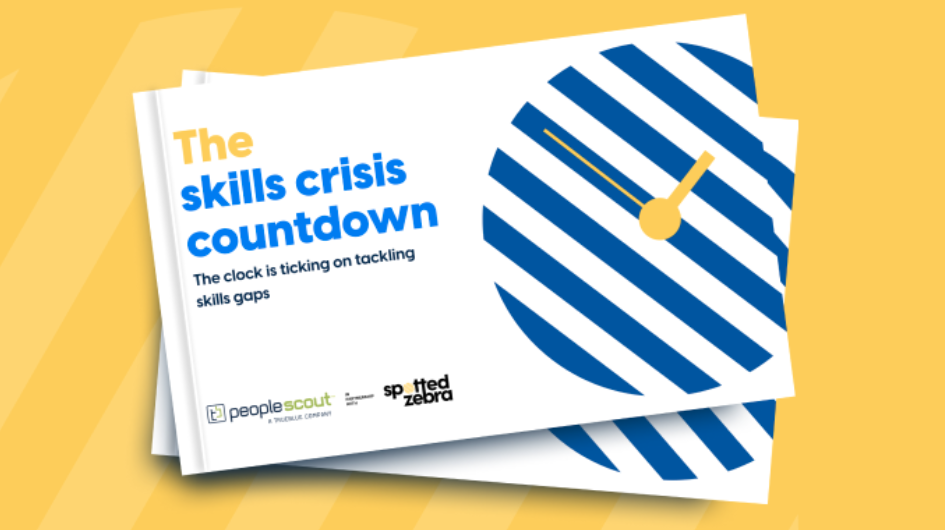Skills Crisis: Talent management shortcomings
Two-thirds of organisations are struggling to find the skills they need; half of HR leaders anticipate advancements in technology and AI will further disrupt skills requirements.
A study by Spotted Zebra and PeopleScout suggests organisations face a deepening skills crisis, with existing skills shortages being exacerbated by talent management shortcomings, while tech developments are expected to further disrupt future skills requirements.
The research report, The Skills Crisis Countdown, shows nearly two-thirds (63%) of organisations are struggling to find the skills they need to meet their strategic goals.
Traditional approaches to recruitment are failing, and 80% of HR leaders report that their top workforce challenge is recruiting skilled talent. Yet HR leaders are not taking decisive action to find and develop skills, with relatively few adopting reskilling (7%), skills-based hiring (22%), or workforce transformation programmes (45%).
The skills required could be hidden in plain sight; overlooked because organisations are failing to understand and manage the skills of their workforce. Less than half (48%) of employees feel that their employer has a good understanding of their skills, while over half (56%) feel their skills are underutilised.
The skills gap is expected to widen further still, with half of HR leaders anticipating that advancements in technology - and particularly AI - will transform job roles and skills requirements.
Skills-based practices become mission critical
The study's findings indicate that many of the existing skills gaps and shortages that have been so well documented are being aggravated by flawed talent management - but that skills-based practices offer a solution to the current skills challenges.
Other key findings from the research include:
- Only 40% of HR leaders are leveraging any technology platforms to manage the skills within their organisation.
- Of those, only 41% are using skills assessment tools.
- Overall, the most common means of identifying skills requirements is feedback from managers and team leads (used by 68%) - and, worryingly, a quarter of organisations (23%) use this feedback alone.
The mismatch between the demands of the workforce and traditional hiring and current talent management practices is ensuring that skills-based talent strategies are now mission-critical.
“Skills-based talent strategies are essential,” says Nick Shaw, Co-Founder and Chief Customer Officer at Spotted Zebra. “Skills-focused organisations are better at understanding the skills needed for roles, at identifying workforce skills strengths and gaps, and at aligning people to opportunities based on fit. This facilitates internal mobility and development, and improves hiring outcomes
“Without future-focused skills strategies for both hiring and development, organisations will suffer lost revenue and productivity when critical jobs are left unfilled.”
However, with technological development accelerating the speed of change for today’s skills requirements, businesses are being warned that they are running out of time to respond.
“In just a few short months, generative AI went from an abstract concept to a tangible force with dramatic impacts worldwide. Skills profiles across industries have already changed dramatically and will continue to evolve rapidly,” said Simon Wright, Global Head of Talent Advisory Consulting of PeopleScout. “This research reveals that many HR leaders are not ready for this transformation.”
Download the full report here for more survey findings and actionable insights for employers.


